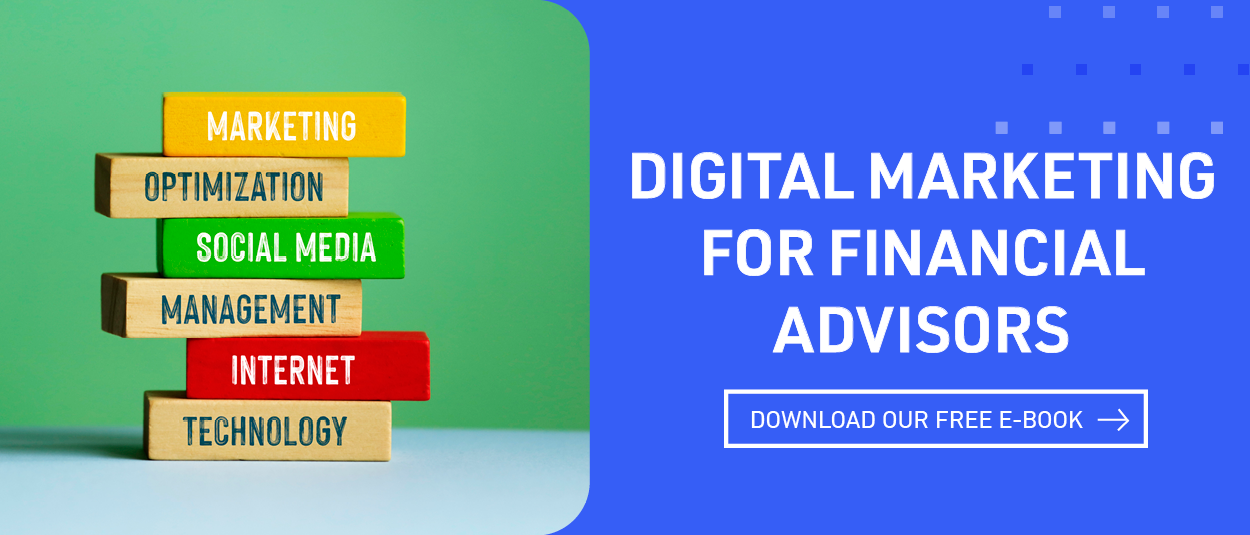

Should Financial Advisors Marketing Focus On Particular Types Of Investors?
When determining and initiating financial advisor marketing strategies, defining your target audience is essential to getting in the game. The common questions that advisors ask us are these:
- How should financial advisors market their services?
- Should our firm provide financial advice and services to anyone who meets our minimum asset requirements?
- Should we focus on particular types of investors where we can create serious competitive advantage?
There are some subtleties in the answer that may surprise you. First and foremost, it does not matter how many leads you talk to. What matters is how many leads you convert into revenue producing clients.
Second, you may be willing to talk to anyone, but that does not mean anyone is willing to talk to you. What if you are just not good at converting leads into clients? This applies to a high percentage of financial advisors who are better planners and investment managers than salespeople.
Baseball is a useful metaphor for financial advisor marketing. How many times you are up to bat is the number of leads you talk to each month. The more times you are up to bat, the more opportunities you have to convert leads into prospects and prospects into revenue producing clients.
How often do you get hits, and how often do you strike out? Hits mean investors are buying what you are selling. Strikeouts mean investors are rejecting what you are selling. You have a serious marketing problem if you don’t get many hits and experience many strikeouts.
Therein lies the key to a successful financial advisor marketing strategy that produces a consistent flow of at-bats and a competitive batting average.
How can we help? Following are seven tips to help financial advisors assess their current marketing strategies and refine them to produce more hits and fewer strikeouts.
Is your current financial advisor marketing strategy working?
 The first step is to assess what is working and not working right now. You have to be brutally honest with yourself. How many leads do you talk to each month (at bats), and what percentage did you convert into clients (hits)?
The first step is to assess what is working and not working right now. You have to be brutally honest with yourself. How many leads do you talk to each month (at bats), and what percentage did you convert into clients (hits)?
You may not have had that many at bats, which may be the problem. You need more opportunities to swing the bat. Or, you have plenty of at bats, but you have real trouble getting hits.
These are two distinct challenges that must work together to produce significant results. There is no problem if you have many leads to talk to each month and convert a significant percentage into prospects and clients.
What are a financial advisor’s biggest marketing challenges?
We believe there are two: One is the development of a consistent flow of new leads seeking financial advisors. In an ideal world, investors visit financial advisor websites, like what they see, and initiate contact to schedule interviews.
The second is the financial advisors’ personal conversion rates. Leads become prospects based on contact and mutual interest. Prospects become revenue producing clients.
Digital marketing can create investor predisposition to select particular financial advisors. What they see on the Internet significantly impacts who they interview and select.
What is the impact of inbound marketing on financial advisors?
A financial advisor can be a firm or a professional. Most of this article is about firms. This particular section is about the professionals who work for the firms.
The financial service industry has a history of making the marketing of firms the responsibility of the professionals: Cold calling, direct mail, networking, referrals, etc. These marketing tactics were based on outbound marketing tactics – that is, the professionals initiated contact with the investors or their referral sources.
Outbound marketing is still around, but less and less. For example, a major wirehouse abandoned cold calling due to its invasive nature, bad image, and poor results.
Outbound marketing has been replaced with inbound marketing, which requires investors to initiate contact with financial advisors. The Internet makes this possible. Investors can find, screen, and contact financial advisors and maintain their anonymity while doing it.
To a large extent, financial advisors need to own their brands and websites to make inbound marketing a viable alternative. So, this is more of a firm strategy than one that professionals can implement.
What makes the best financial advisors less marketable?
Most financial advisors offer the same features and benefits to investors: Boutique, fiduciary, independent, and fee-only. And many advisors have difficulty describing differentiating characteristics – what makes them better and/or different.
This makes it challenging for investors to tell them apart. When this happens, investors are prone to selecting the financial advisors they like the best. This puts additional importance on the financial advisors’ sales skills and personalities.
The subjectivity creates a lot of hidden risk for investors. They are much better off making objective selection decisions based on documented information. This also creates a significant challenge for financial advisors who are not skilled sales professionals—their primary skills may be planning and investing.
What makes financial advisors more marketable?
Financial advisors must give investors what they seek to make it to the next step. This includes the right:
 Credentials, ethics, business practices
Credentials, ethics, business practices- Financial advice and services
- Areas of specialized knowledge
- Fees and other expenses
- Analytics and reports
- Service meetings
Investors have to be able to find this information online. They will use it to screen financial advisors and select the ones they want to interview.
Why is it increasingly difficult to control the information that investors use to screen and select financial advisors?
The Internet gives investors access to unprecedented amounts of information about financial advisors. There are three keys to the marketability of financial advisors. All of this information should be disclosed on financial advisor websites:
- Advisors provide the services that investors are seeking (What We Do page)
- Advisors work with particular types of investors (Who We Serve page)
- Financial advisors are experts (Our Team page)
How can the Internet impact the sales funnels of financial advisors?
The Internet gives investors an unprecedented amount of power when they are seeking, screening, and selecting financial advisors. 82% will visit the websites of financial advisors, and 64% will Google search the names of professionals and firms.
The investors are anonymous until they initiate the contact. Then most of the contact is through email and text messages. Once again, the method of contact is controlled by investors.
At this point, digital marketing is impacting the entire front-end of the sales funnel: How investors find financial advisors, screen advisors, and contact financial advisors. Digital marketing can even impact the pre-disposition of investors to hire particular financial advisors.
Why do specialists produce more assets than the generalists?
Specialization is a feature of our society. Perhaps the medical community is the epitome of this phenomenon. We don’t go to brain surgeons for knee surgery. We inherently believe specialists produce better results than generalists.
This carries over to the professionals who provide financial advice for the assets of investors. If investors are about to retire, selecting a financial advisor who specializes in working with pre-retirees makes sense.
If a woman is recently divorced, selecting an advisor who works with divorced women makes sense. This additional layer of knowledge will benefit the recently divorced women who need high-quality advice from professionals they can trust.
How do investors know if financial advisors are specialists or will work with anyone who can afford them? The information resides on their website on the Who We Serve page. Knowledgeable investors do not rely on verbal sales pitches to make this determination.
Specialized financial advisors have a significant competitive advantage. Download our free eBook to jump on digital marketing for financial advisors.
Next Step
PDM specializes in digital marketing for financial advisors. Contact Paladin Digital Marketing to learn more about how the Internet can help you market your firm on the search engines where your target market is searching for wealth management guidance.

Jack Waymire, BA, MBA
Search Here
Categories
- AI (18)
- blogging (2)
- branding (1)
- content (12)
- custodians (1)
- Digital (535)
- email marketing (3)
- fcmo (3)
- fees (1)
- financial advisor marketing (66)
- Google (3)
- Ideas & Tips (125)
- Investor Experience (7)
- lead generation (7)
- linkedin (1)
- Marketing (605)
- newsletters (1)
- Online Transparency (2)
- podcasting (1)
- search engine optimization (4)
- seo (9)
- Social Media (2)
- video (3)
- Websites (172)
- YouTube channel (2)
Recent Posts
-
 October 22, 2025
October 22, 2025 -

-

Top 10 Business Challenges for Smaller Financial Advisor Firms
October 16, 2025 -

How Financial Advisors Use AI to Optimize Website Compliance
October 14, 2025 -

AI Blogging On Your Financial Advisor Website
October 10, 2025

